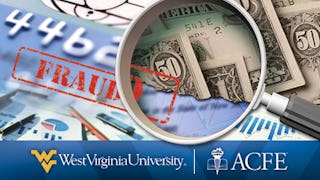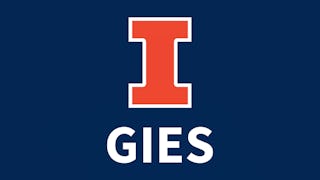By the end of this course, learners will be able to identify different types of fraud, analyze red flags across business functions, collect and evaluate evidence, design effective anti-fraud programs, and prepare professional investigation reports.



What you'll learn
Identify fraud types and analyze red flags across business areas.
Apply evidence collection and investigative reporting techniques.
Design anti-fraud programs and evaluate prevention measures.
Skills you'll gain
Details to know

Add to your LinkedIn profile
September 2025
12 assignments
See how employees at top companies are mastering in-demand skills

There are 3 modules in this course
This module introduces learners to the fundamentals of forensic accounting, including its scope, need, and significance in modern organizations. It explores various types of fraud and their impact on businesses, while also highlighting the evolving role of forensic accountants in detecting and investigating fraudulent activities. Learners will gain a strong foundation to understand why forensic accounting is critical in today’s fraud-prone environment.
What's included
12 videos4 assignments1 plugin
This module delves deeper into various fraud types, the concept of red flags, and their significance in fraud detection. It covers global scams, fraud indicators across business functions, and the structured process of conducting investigations. Learners will develop the ability to identify, interpret, and act upon fraud red flags in real-world organizational contexts.
What's included
12 videos4 assignments
This module focuses on the practical aspects of fraud investigation, including direct and indirect evidence collection, sting operations, and structured anti-fraud programs. It also emphasizes the role of employee training, the use of modern fraud detection tools, and best practices for preparing effective investigation reports. Learners will acquire hands-on skills to strengthen fraud detection, prevention, and reporting processes.
What's included
11 videos4 assignments
Explore more from Finance
 Status: Preview
Status: PreviewUniversity of Illinois Urbana-Champaign
 Status: Free Trial
Status: Free TrialCoursera Instructor Network
 Status: Preview
Status: PreviewWest Virginia University
 Status: Preview
Status: PreviewUniversity of Illinois Urbana-Champaign
Why people choose Coursera for their career





Open new doors with Coursera Plus
Unlimited access to 10,000+ world-class courses, hands-on projects, and job-ready certificate programs - all included in your subscription
Advance your career with an online degree
Earn a degree from world-class universities - 100% online
Join over 3,400 global companies that choose Coursera for Business
Upskill your employees to excel in the digital economy
Frequently asked questions
To access the course materials, assignments and to earn a Certificate, you will need to purchase the Certificate experience when you enroll in a course. You can try a Free Trial instead, or apply for Financial Aid. The course may offer 'Full Course, No Certificate' instead. This option lets you see all course materials, submit required assessments, and get a final grade. This also means that you will not be able to purchase a Certificate experience.
When you purchase a Certificate you get access to all course materials, including graded assignments. Upon completing the course, your electronic Certificate will be added to your Accomplishments page - from there, you can print your Certificate or add it to your LinkedIn profile.
You will be eligible for a full refund until two weeks after your payment date, or (for courses that have just launched) until two weeks after the first session of the course begins, whichever is later. You cannot receive a refund once you’ve earned a Course Certificate, even if you complete the course within the two-week refund period. See our full refund policy.
More questions
Financial aid available,



